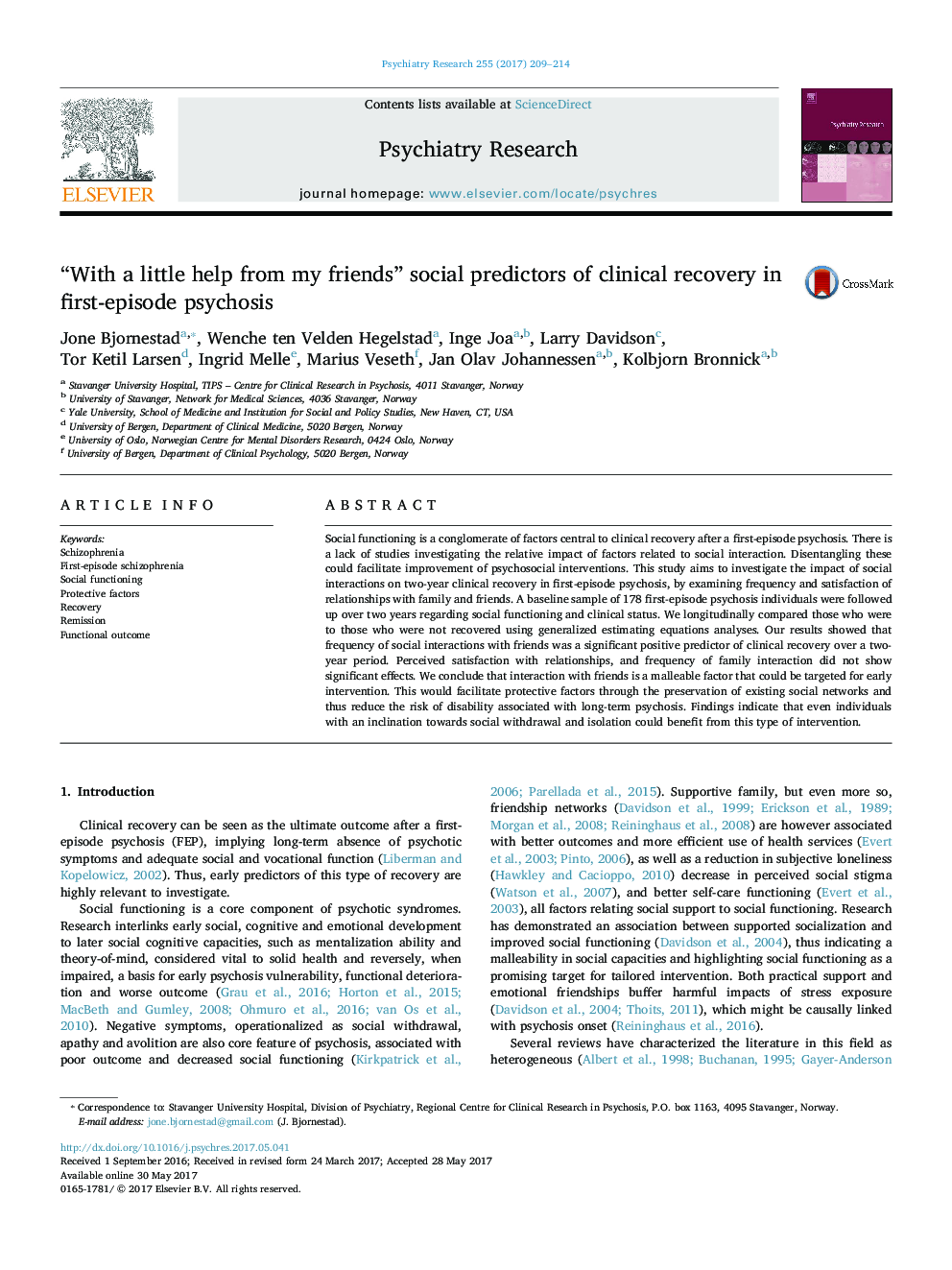| Article ID | Journal | Published Year | Pages | File Type |
|---|---|---|---|---|
| 4933195 | Psychiatry Research | 2017 | 6 Pages |
Abstract
Social functioning is a conglomerate of factors central to clinical recovery after a first-episode psychosis. There is a lack of studies investigating the relative impact of factors related to social interaction. Disentangling these could facilitate improvement of psychosocial interventions. This study aims to investigate the impact of social interactions on two-year clinical recovery in first-episode psychosis, by examining frequency and satisfaction of relationships with family and friends. A baseline sample of 178 first-episode psychosis individuals were followed up over two years regarding social functioning and clinical status. We longitudinally compared those who were to those who were not recovered using generalized estimating equations analyses. Our results showed that frequency of social interactions with friends was a significant positive predictor of clinical recovery over a two-year period. Perceived satisfaction with relationships, and frequency of family interaction did not show significant effects. We conclude that interaction with friends is a malleable factor that could be targeted for early intervention. This would facilitate protective factors through the preservation of existing social networks and thus reduce the risk of disability associated with long-term psychosis. Findings indicate that even individuals with an inclination towards social withdrawal and isolation could benefit from this type of intervention.
Keywords
Related Topics
Life Sciences
Neuroscience
Biological Psychiatry
Authors
Jone Bjornestad, Wenche ten Velden Hegelstad, Inge Joa, Larry Davidson, Tor Ketil Larsen, Ingrid Melle, Marius Veseth, Jan Olav Johannessen, Kolbjorn Bronnick,
